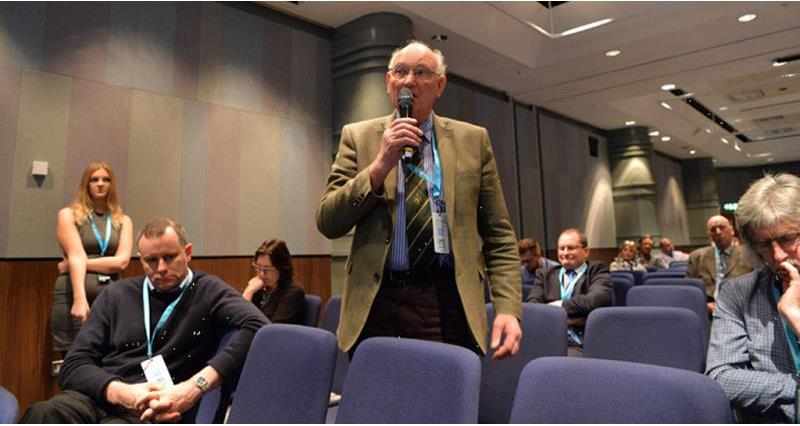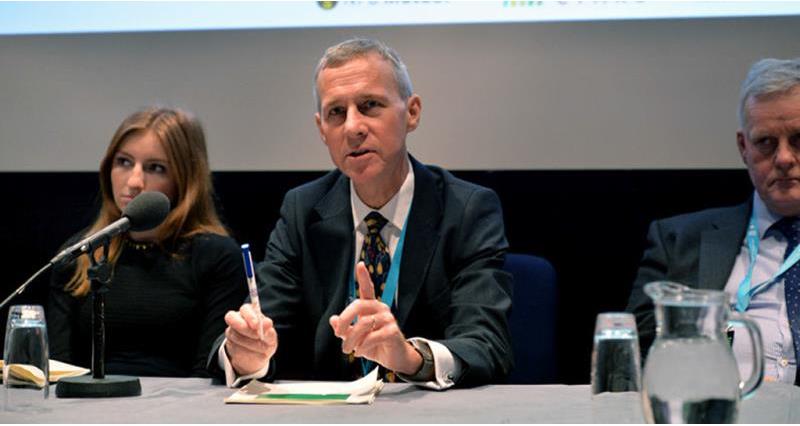Whilst he credited the industry for its good biosecurity in general, he also advised that in all nine domestic cases in the UK over the past few months biosecurity has been an issue, highlighting how imperative good biosecurity is in the eradication of Avian Influenza. This provided some context for the proposed amendments to the Prevention Zone due to come into force on 28 February. When questioned on the reasoning behind these amendments the CVO stated that the approach was a ‘sensible risk-based judgement to allow free range to resume, while dealing with Higher Risk Areas’. In response to criticism over the complexity of the proposals he stated ‘detail matters, so I don’t apologise for the detail’.
The risk-based approach that Defra has taken has been scrutinised over the past few weeks and the poultry breakout session provided the perfect platform for Nigel to explain the approach that had been taken. He was clear that no part of England is low risk, it is imperative that keepers realise that area differentiation is between high and higher; therefore there is no suggestion of reduced risk. For those who are outside the Higher Risk Areas the onus has been placed on poultry keepers to assess their own risk level and make a responsible decision as to whether or not to allow their poultry access to the range post 28 February. Nigel stated ‘some of you will know that even if you are in an area that is not defined as higher risk, you are at high risk. If you know that, think very hard about what you do next.’

This sentiment was echoed by UKIP MEP and free range egg producer Stuart Agnew (pictured above) who said that, after undertaking a thorough risk assessment with his vet, he had decided to continue to house his birds. This decision was praised by the CVO who referred to the cost of an outbreak, estimated at an average of £3 million, £2 million of this cost falls to the tax payer and £1 million to the industry. Nigel emphasised ‘this is not trivial, you want to minimise the chance of that happening’.
By deciding to continue to house their birds, free range poultry producers will undoubtedly lose free range status. The CVO reiterated that this was most likely particularly as Commissioner Hogan has made it clear that there will be no extension to the 12 week derogation which protects free range status.. Charles Bourns, National poultry board member and chairman of the COPA-COGECA poultry working group, gave an overview from the panel of the European situation and said that housing orders remained in place across Europe. He also said that COPA have begun the process of setting up an Avian Influenza working group to begin looking at longer term solutions to the AI threat which, as the CVO had earlier stated, is likely to become an annual issue.
What is clear is that the high and Higher Risk Areas as defined by Defra do not indicate a risk reduction, as the CVO was keen to point out. It is imperative that keepers undertake their own risk assessments, in conjunction with their vet, to inform any decision about allowing their birds access to the range. If the result of such risk assessment requires birds to remain housed for their own welfare then this should be respected.NFU’s chief poultry advisor Gary Ford called on retailers to continue to support free range producers affording them the opportunity to come to the best decision regarding options for birds to range post 28 February, without the threat of any financial implications.
